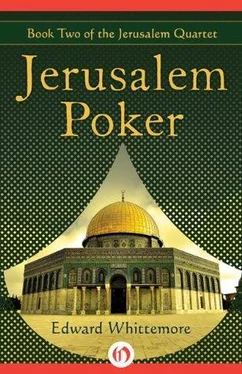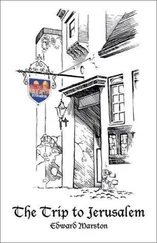Sivi laughed. He raised his nearly empty glass of ouzo and tipped it, gazing at the milky liquid left in the bottom. Munk shook his head.
You're not just a shameless romantic, Sivi. You're a shameless aging romantic and that's the very worst sort. To be young and romantic is understandable. But at your age? After all the grief and torment you've seen in the world?
Sivi nodded. He stroked the end of his white moustache.
It's true. I used to try to fight it, to get up each morning prepared to curse and be gloomy. An ache here and a pain there? Neither mind nor body functioning as well as the day before? Evidence, you would think, that the world is indeed a dreadful place to live. Yes, I had my good intentions of a dark nature, but as it happened they never survived the bedroom where I found myself that morning, no matter how sordid the place might appear at first glance. I'd wake up and look around me and think, Oh my God, what have you done now? What have you gotten yourself into this time? How could you possibly have behaved that way last night? Yesterday at this hour you were a total wreck, but to have sunk even lower? It's unimaginable. This is the very end.
And so on. Darkness at dawn, in other words. Terminal despair at dawn. The worst thoughts to be found in the land of the living. But then what did I spy as I lay there beyond hope in that ghastly place? What else, a window. Even the most wretched bedrooms in Smyrna have windows. So over to the window I'd go and raise the shade and stick my head out, what little was left of it, and what do you suppose was waiting for me out there? The Aegean, and the light of the Aegean. And at that moment I knew any attempt at despair that day could only fail. There was too much to see out there, and to feel and hear and smell and taste. So in time I stopped fighting it. I had no choice but to accept my love of life, and of love, as incurable.
Then too I was lazy, which was the real reason I never got on with a massive scholarly study. It would have meant giving up too many things, added Sivi, wagging his head and staring lasciviously at the thin milky dregs in his glass of ouzo.
Munk laughed.
In your hands everything becomes obscene.
Not so, said Sivi. Merely observed in its true light, which is essentially sensual.
I'm afraid the sun with its true light has already set, you old rogue. Put down your suggestive glass.
Almost three years passed before Munk found his dream as Sivi had predicted he would, not by the sea but in the desert. And he did so, curiously, through the unexpected intercession of his old friend from the hectic weeks of the first Balkan war, the diminutive officer who had been the Japanese military attaché in Constantinople.
Then Major, now Colonel, Kikuchi had returned to Japan before the First World War. Toward the end of the winter of 1921 he wrote an urgent letter to Munk from Tokyo saying he had just learned that his older twin brother, the former Baron Kikuchi, an esthete and collector of French Impressionist paintings, had converted to Judaism while visiting Jerusalem on his way home from Europe. He was now residing in the town of Safad in Palestine.
The colonel explained that his brother's health had always been delicate and he was concerned about living conditions in postwar Palestine. Furthermore, in the last months his brother's letters had taken on a new feverish quality that disturbed the colonel, remembering as he did the virulent diseases that had stricken foreigners exposed to Turkish meat during the days of the Ottoman Empire.
Is the situation still as dangerous as before the war? wrote the colonel in his precise hand. Or have the Allies cleaned up the meat in the Middle East? When my brother was a Buddhist he never ate meat, of course, but now that he's a Jew I don't know what he might be eating. Please, dear Munk, could you possibly go to this town of Safad, which looks pitifully small on the maps, and see if my twin brother is well?
Munk cabled that he was on his way and left for Safad immediately. With his affectionate memories of Colonel Kikuchi he would have gone in any case, but the circumstances particularly intrigued him.
In Safad he learned that the former Baron Kikuchi had pursued rabbinical studies there, specializing in medieval Jewish mysticism. He was now known as Rabbi Lotmann, a highly respected but eccentric figure in occult circles. It seemed he had left Safad a few weeks earlier, although no one could quite remember the day. Nor could anyone say when he might return, or where he had gone. As Munk questioned the scholars it became obvious they were being evasive.
Why? What were they afraid he might discover?
You know I'm Jewish, said Munk, and of course they did, the Szondi name having been made famous by the Sarahs. Yet still the scholars would tell him nothing. Finally Munk went to the chief rabbi of Safad to try to find an explanation for the way he had been received.
In the case of Rabbi Lotmann, answered the old man solemnly, the fact that you're Jewish isn't enough.
It's not?
No.
Why?
Because there's more these days. But I'll say nothing more.
Bewildered, Munk went on to Jerusalem hoping to find another man he had met during the first Balkan war, an Arabic Jew named Stern who ran guns against the British and French in the Middle East, an agent who knew a great deal about clandestine affairs in Palestine and elsewhere.
Fortunately Stern was in Jerusalem. As usual he asked Munk for money and Munk gave it to him. Munk then explained whom he was seeking and what he had been told in Safad.
Stern nodded. Slowly he smiled.
The Japanese rabbi? Yes, I've heard of him. He's an underground Zionist. Newly involved but very active.
Munk was astounded. Stern's smile broadened.
I agree, Munk. Stranger things may have happened lately but none that I'm aware of. There was a possibility the British had begun to watch him so it was decided he should go into hiding for a while.
Where? Turkey? Europe?
Stern shook his head.
Not that man. Hiding, yes. Running away, no. He's still here, he's in the Sinai. St Catherine's monastery.
And I'd advise you to approach him in a circumspect manner. They say he's an expert archer. He can hit a shilling at a hundred yards.
What?
Stern laughed.
Zen and archery, Munk, the way of the Japanese warrior. It seems the former Baron Kikuchi had an old-fashioned upbringing. And take a coat with you if you're going down to the Sinai. The nights are still very cold down there.
It was Munk's first visit to St Catherine's. He learned that Rabbi Lotmann was using his Japanese name at the monastery, to avoid the possibility of informers identifying him with the Lotmann occultist in Safad whose clandestine Zionist role was under suspicion. Accordingly, he had presented himself to the Greek monks of the place as a Nestorian Christian from China on a pilgrimage to the Holy Land, his wish to stay at St Catherine's motivated by a special interest in praying on Moses' mountain.
Being unfamiliar with Oriental names in that remote setting, and oblivious to transitory historical matters, the monks had readily accepted the presence of a pious Chinese Christian called Baron Kikuchi, unaware the name couldn't be Chinese, unaware as well that the Nestorian community in China had ceased to exist centuries ago.
During the hours of daylight, Munk was told, the Chinese pilgrim removed himself to the far side of the mountain to pray in solitude at a collapsible altar he carried over there in two parts, setting up collapsible altars on holy mountains evidently being a Nestorian custom.
Upon returning at sundown the Chinese pilgrim ate his evening meal and then sat up late in his cell praising God by playing music on an unusual stringed instrument that lay flat on the floor, evidently another Nestorian custom. This peculiar form of nightly Oriental worship, said the Greek monks, went on for at least three or four hours every evening.
Читать дальше












